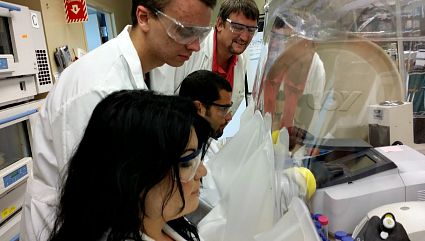
Today, only about 25 percent of biomedical and life science Ph.D. holders take jobs as tenure-track faculty in major research institutions like Wayne State, with another 75 percent pursuing careers in business and industry, communication, or federal and state government.
But how well do doctoral programs in the sciences prepare students for careers outside the academy?
In 2013, the National Institutes of Health announced the BEST (Broadening Experiences in Scientific Training) initiative, designed to help universities provide doctoral students with more comprehensive career development opportunities. Under the leadership of Graduate School Dean Ambika Mathur, Ph.D., Wayne State University received one of the coveted BEST grants to launch a program with an array of events and activities to assist students as they explore these opportunities.
Programs like WSU-BEST can have a large impact on the biomedical workforce in metro Detroit and across the state. The training received by doctoral recipients makes them well-suited for solving complex problems requiring critical reasoning and an analytical aptitude. Helping self-motivated individuals find satisfying career options in Michigan can be a significant driving force in economic development and can help open the door to creative new partnerships in the region.
On Sept. 15, the Graduate School will hold an orientation to the BEST program from 4 to 6 p.m. in the Margherio Family Conference Center on the School of Medicine’s campus. Mathur will introduce the program, and participants from the 2014-15 cohort will discuss their experiences and answer questions. Carmen Gamlin, director of the Office of Graduate Career Services, will discuss upcoming BEST activities, including a series of panel discussions during the upcoming “Work Week” beginning Sept. 21, where each day is devoted to a different career domain, such as business, law or government.
For more information, visit wayne.edu/gradschool/best or contact BEST Program Coordinator Heidi Kenaga at BEST@wayne.edu.
